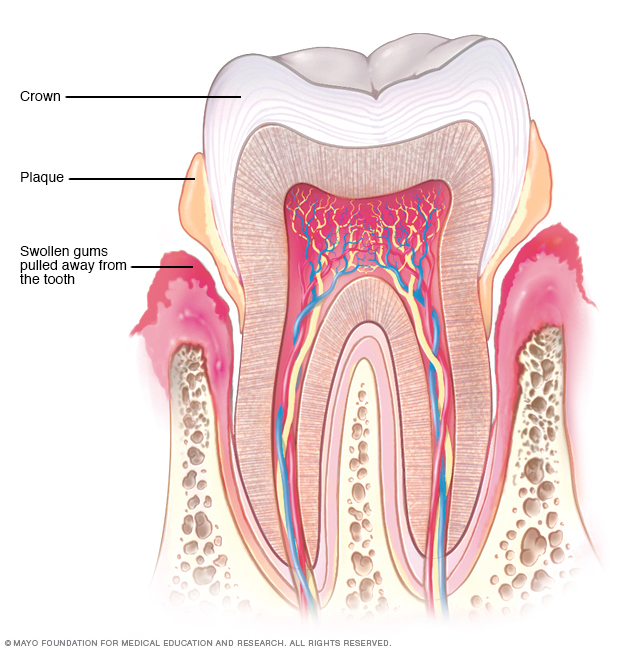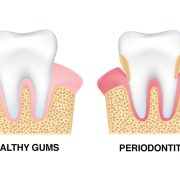If you have gum disease and are not treating it, your condition will get worse over time. It’s a common problem for people who have untreated, advanced periodontal disease. Left untreated, this infection can also lead to chronic inflammation of the gums (periodontitis) and bone loss. Fortunately, with regular checkups, home care, and periodontal treatments from your dentist or hygienist such as scaling and root planing—procedures done to remove plaque and tartar above and below the gum line—you can stop further damage from occurring. These articles explain how to prevent periodontal disease from getting worse!
Change your brushing habits to avoid gum disease
Maintaining good oral health by brushing and flossing regularly can greatly reduce your risk of developing periodontal disease. Ideally, you should brush your teeth twice a day using an appropriate technique. If you are over 35, use an alternative method to brush your teeth such as an electric toothbrush and an appropriate gentler toothpaste to reduce the risk of gum recession and tooth loss.
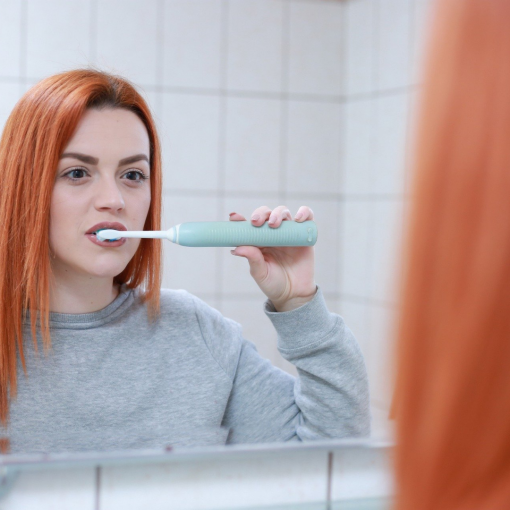
Whether you brush or use an electric toothbrush, you should use a gentle technique to avoid damaging your gum tissue and teeth. If you are using a manual toothbrush, you should apply only light pressure when brushing your teeth, as brushing too hard can damage your gums.
Get teeth cleaned by a hygienist for avoiding gum disease
Regular cleanings and examinations by your dentist or hygienist are essential in the prevention and detection of periodontal disease and other oral diseases. A thorough teeth cleaning should remove plaque and calculus (tartar) above and below the gum line. This procedure is usually part of a regular teeth cleaning, although some dentists or hygienists may recommend a special cleaning, such as an ultrasonic or laser cleaning.
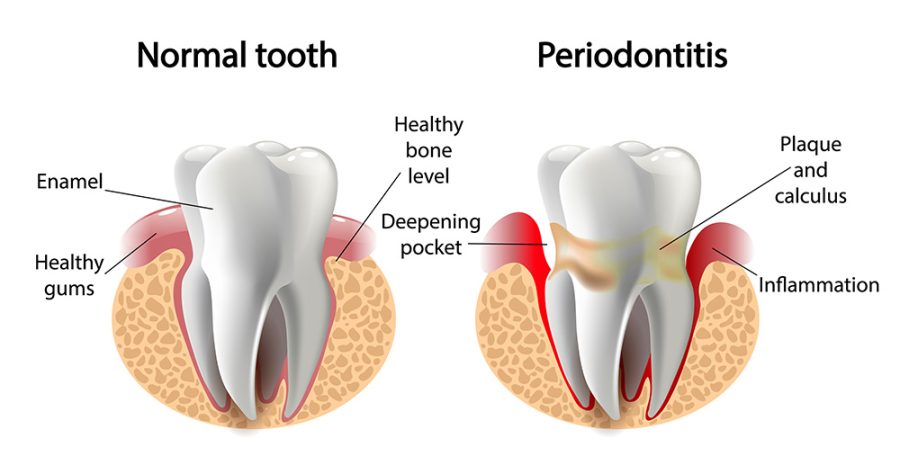
If a teeth cleaning is not removing the plaque and tartar adequately. If you have advanced gum disease, your dentist or hygienist may recommend that you have periodontal therapy (scaling and root planing) to remove the plaque and tartar that is contributing to your gum disease.
Use an effective mouthwash to avoid gum disease
If you have gum disease, you may want to use an antiseptic mouthwash such as chlorhexidine to reduce the amount of bacteria in your mouth. A study showed that a mouthwash containing 0.12% chlorhexidine significantly reduced the amount of bacteria in patients with periodontal disease compared to those who used a placebo mouthwash.
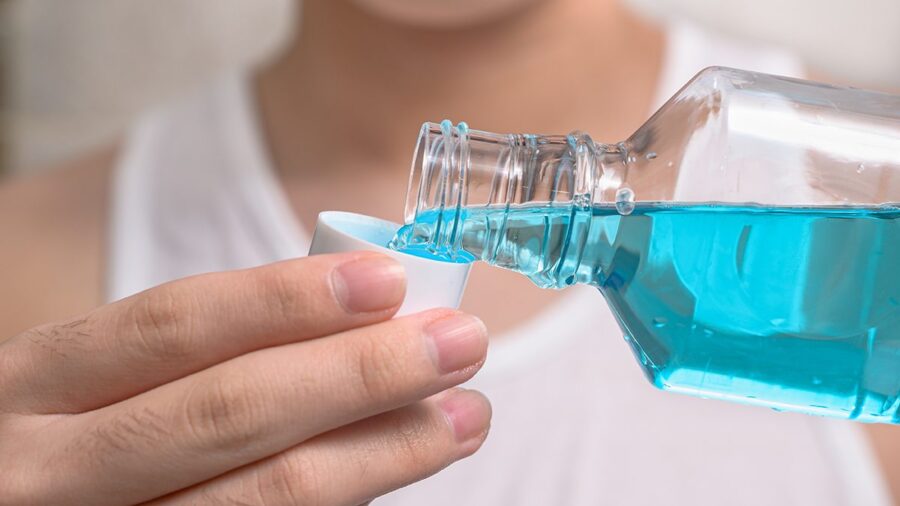
If you have gum disease, you may also want to use an antibacterial mouthwash to help reduce the amount of bacteria in your mouth. Mouthwashes that contain triclosan and fluoride are effective against plaque, gingivitis (inflammation of the gums), and bad breath. You can also use a toothpaste with triclosan, which has been shown to reduce the amount of plaque and gingivitis.
Ask dentist about treatment options for gum disease
If you have advanced gum disease and your Periodontitis disease is not improving with gum brushing, flossing, and regular visits to the dentist, your dentist may recommend periodontal treatment. For chronic gum disease cases, your dentist may recommend periodontal surgery such as a gum graft or periodontal flap surgery.
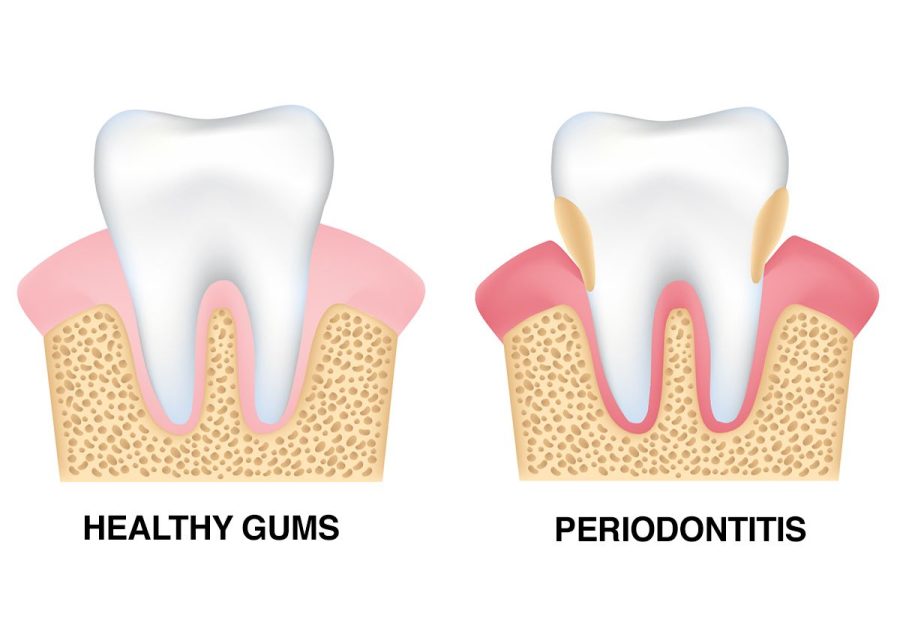
A gum graft involves removing some of the healthy gum tissue from the site of gum disease (the attachment areas) and replacing it with a new tissue graft from the roof of the mouth (the palate) to help the gum tissue to reattach to the teeth. In a periodontal flap surgery, your dentist will remove the infected gum tissue and part of the underlying bone to clean the root surfaces of the teeth. A flap surgery is often done in combination with gum grafting.
Take home care measures to stop further damage
Eat a healthy diet.
Follow a healthy diet that is low in sugar and high in fibre.
Brush your teeth twice a day with a soft-bristled brush, floss daily, and use mouthwash as needed.
Have your teeth cleaned by a dentist or hygienist every three months.
See your dentist for regular examinations and gum treatment if you have gum disease.
Conclusion
Periodontitis is a bacterial infection that damages your gums and can lead to tooth loss. If you have gum disease. You should see your dentist to get periodontal treatment as soon as possible to stop further damage. If you have gum disease, you should change your brushing and flossing habits. Have your teeth cleaned by a dentist or hygienist, use an effective mouthwash, and ask your dentist about treatment options. You can also take home care measures to stop further damage by following a healthy diet. Brushing your teeth twice a day, and having your teeth cleaned by a dentist or hygienist every three months.

